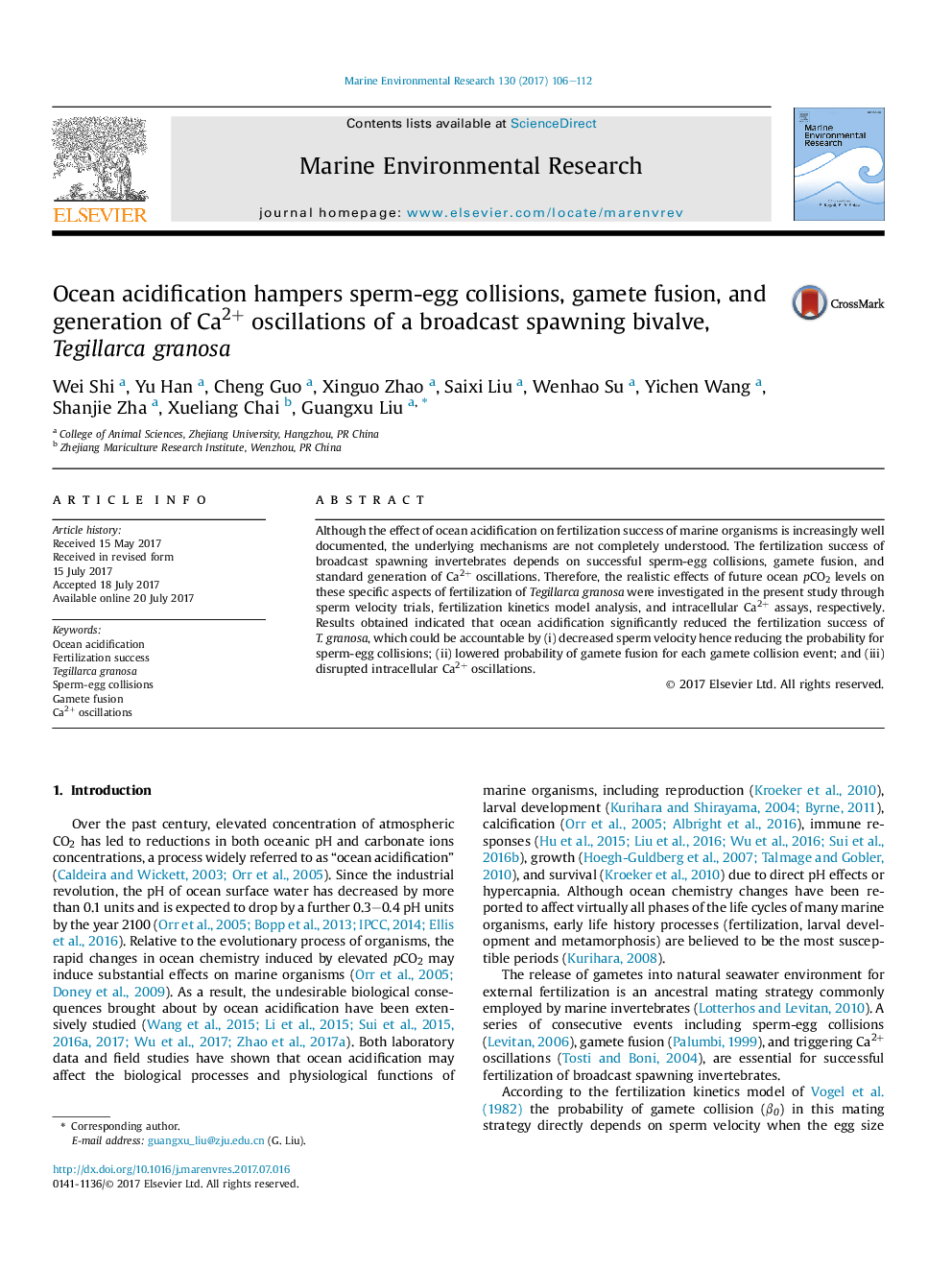| Article ID | Journal | Published Year | Pages | File Type |
|---|---|---|---|---|
| 5766148 | Marine Environmental Research | 2017 | 7 Pages |
â¢Effects of elevated pCO2 on the fertilization success of T. granosa were examined.â¢Sperm velocity and fertilization success were decreased with elevated pCO2.â¢Decreased sperm velocity can hence reduce the probability for gamete collisions.â¢Ocean acidification lowered the probability of gamete fusion per collision.â¢Ocean acidification can disrupt intracellular Ca2+ oscillations.
Although the effect of ocean acidification on fertilization success of marine organisms is increasingly well documented, the underlying mechanisms are not completely understood. The fertilization success of broadcast spawning invertebrates depends on successful sperm-egg collisions, gamete fusion, and standard generation of Ca2+ oscillations. Therefore, the realistic effects of future ocean pCO2 levels on these specific aspects of fertilization of Tegillarca granosa were investigated in the present study through sperm velocity trials, fertilization kinetics model analysis, and intracellular Ca2+ assays, respectively. Results obtained indicated that ocean acidification significantly reduced the fertilization success of T. granosa, which could be accountable by (i) decreased sperm velocity hence reducing the probability for sperm-egg collisions; (ii) lowered probability of gamete fusion for each gamete collision event; and (iii) disrupted intracellular Ca2+ oscillations.
